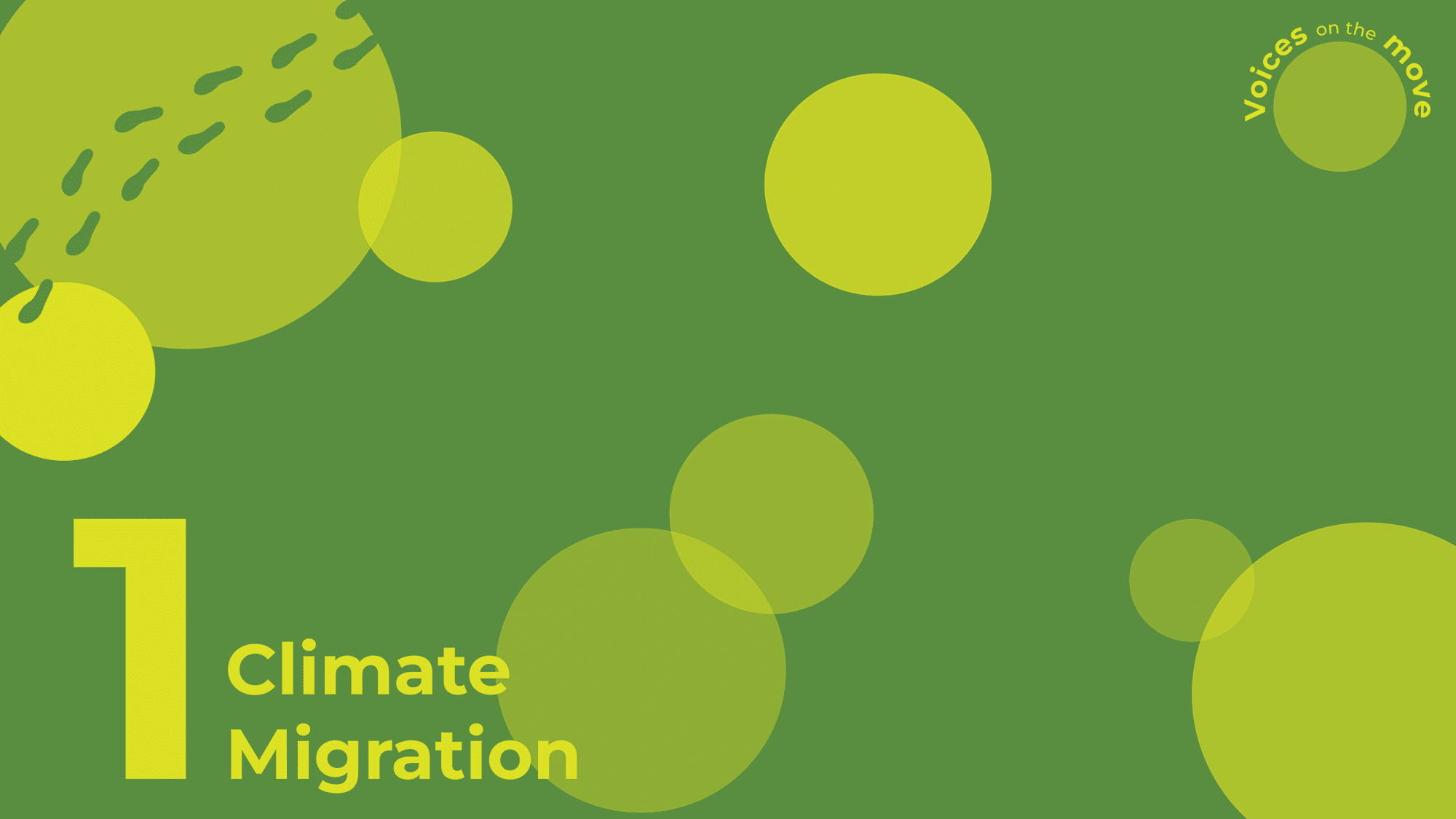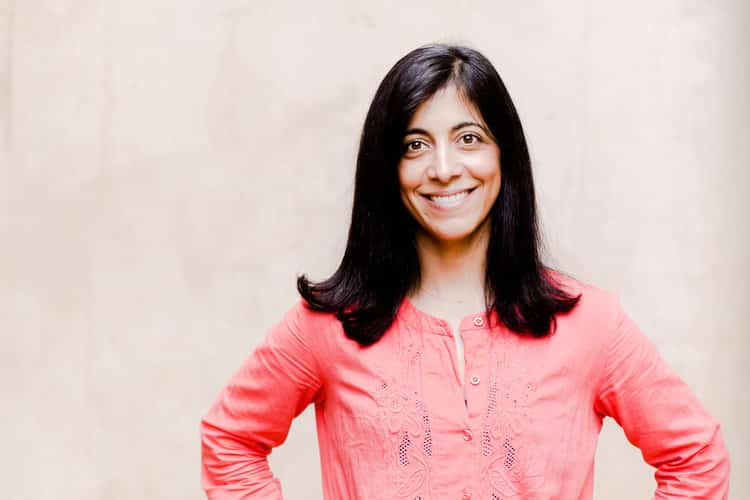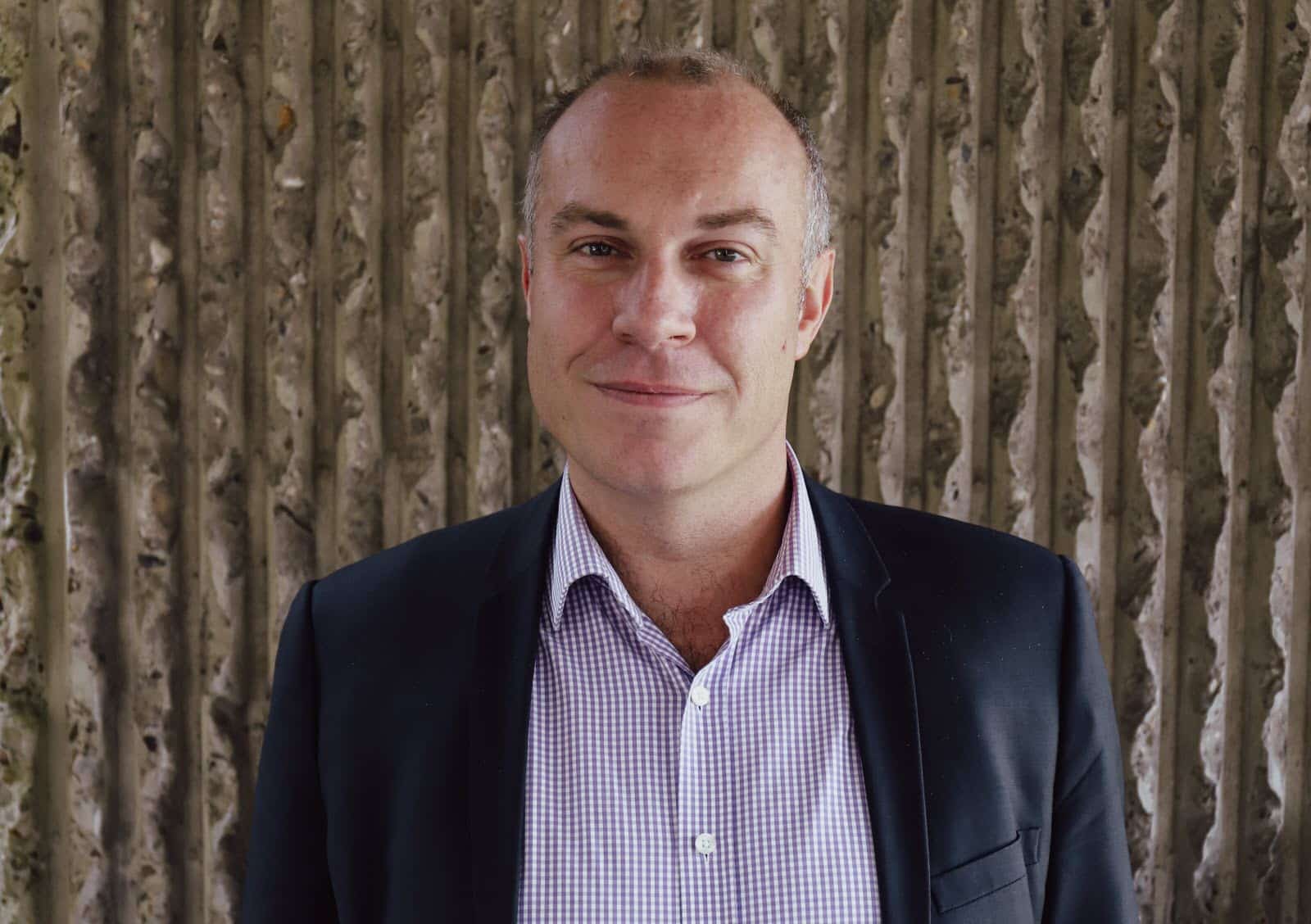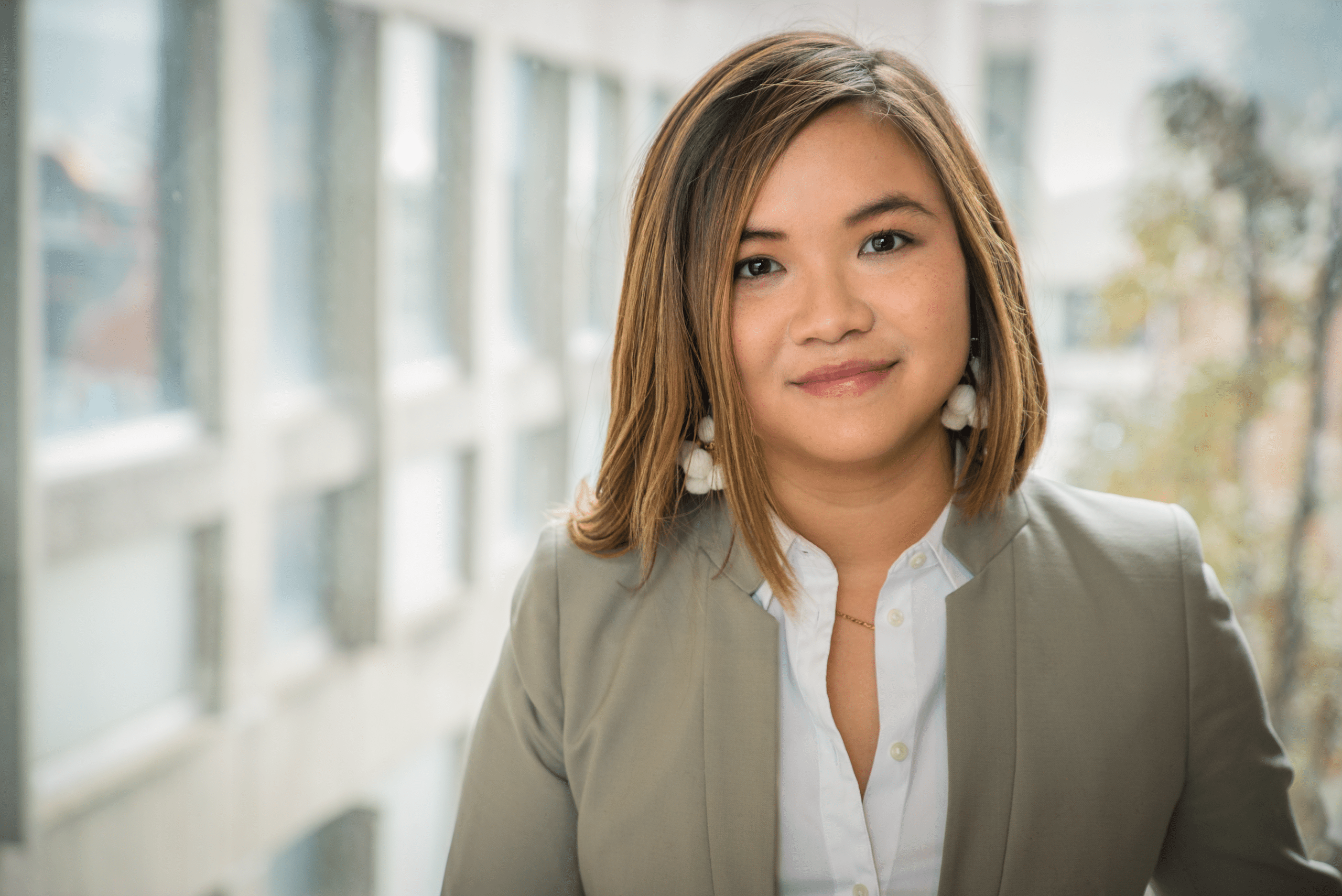00:01:02
François Gemenne: If you think, for example, about the British people who buy houses in the South of France because they’re fed up with the fog and the rain, and they want some sun in France or in Spain or in Portugal, they are also relocating permanently. But would you call them climate refugees? No, that would be shocking to put them in the same group, in the same category as people in Bangladesh who are fleeing for their life because of a cyclone or because of a flood? And yet these two groups of people both move for climate related reasons.
00:01:43
Sophia Burton (Host): Trying to link climate change directly to migration and discussions focused on labeling climate migrants often miss the mark. In this podcast series, we’ll explore how individuals and communities use and have always used mobility as a strategy to adapt to environmental changes. Welcome to Voices on the Move, a podcast that brings together researchers and migrants to initiate a human centered conversation about climate change and its relationship to migration.
00:02:22
Rita: Last year on my farm, I planted Irish potatoes, but the plants suffered damage because of the excessive rain. Instead of getting the usual 60 or 70 bags that I would get from that large farm, I only managed to harvest 11 bags. Our yields have declined.
00:02:40
Sophia Burton (Host): Over the course of this series, we’ll listen to stories from people affected by climate change in both the Global South and Global North. People who have made the decision to move elsewhere, near or far, temporarily or permanently. This series is a collaboration between York University, the Dahdaleh Institute for Global Health Research, the HABITABLE project, Samuel Hall, and Migration Matters. I’m Sophia Burton, your host. In this first episode, we’ll hear from three renowned scholars whose work focuses on this intersection of migration and climate change.
00:03:25
François Gemenne: When it comes to dealing with the impacts of climate change, there is a kind of strong narrative around the collapse of societies, around the devastating impacts of climate change, as if those would only materialize in the future.
00:03:39
Sophia Burton (Host): This is François Gemenne, a professor of political science and the director of the Hugo Observatory at the University of Liège. François co-leads the International HABITABLE research project.
00:03:53
François Gemenne: I think that a lot of people in industrialized countries still think of themselves as immune from the impacts of climate change. We really need to shift the focus on this to consider not just what’s happening to ourselves and not just what might happen in the future, but to consider what is happening right now elsewhere.
00:04:15
Sophia Burton (Host): Now we turn to Yvonne Su, an assistant professor and director of the Centre for Refugee Studies at York University in Canada. Her work focuses on climate change induced migration and post-disaster recovery.
00:04:31
Yvonne Su: When I look at the headlines about climate change and migration and mobility, climate change is often only talked about that it’s a natural phenomenon. Most of the time, the headlines are very dramatic. They’re often talking about waves of climate refugees, floodgates being open. There’s lots of these very natural metaphors that are used that often overwhelm people who are reading it.
00:04:57
Nassim Majidi: And then another level is the fact that we tend to misunderstand what pushes communities to leave or what the decision making process is.
00:05:07
Sophia Burton (Host): Nassim Majidi is a researcher and co-founder of the social enterprise Samuel Hall. Samuel Hall specializes in on the ground research on migration and displacement with migrants and local communities. Perspectives from the Global South are chronically underrepresented in climate research. This also applies to the perspectives and knowledge of women and indigenous populations worldwide. In this podcast series, we’d like to change that.
00:05:43
Nassim Majidi: So if we actually listen to the communities themselves, they will tell you the problem is not climate change. The problem is the lack of preparation, prevention, and response by governments.
00:05:56
François Gemenne: A lot of governments see migration as something they should resist, as something that they should try and avoid. Whereas if they were to organize and plan migration, then it would give migration a real chance to become a meaningful and efficient adaptation strategy.
00:06:13
Yvonne Su: I think we need to have a more nuanced conversation about climate change and migration today, because historically, the conversation has been around the label of climate change refugees. But I think it’s so much more than this legal and policy oriented conversation.
00:06:27
François Gemenne: Most of the big challenges that we’ll have to deal with in the 21st century, be it migration, development, peace and security, agriculture, all of these challenges will be impacted by climate change.
00:06:41
Nassim Majidi: Migration is often approached as a political issue whereas climate change is approached as a scientific issue.
00:06:51
Sophia Burton (Host): Our podcast series takes a story based approach to bridge that gap, focusing on the lived experiences of people in climate vulnerable areas, along with contextualization from scholars.
00:07:15
Lamin: My family and I, we used to do some crop farming. Soya beans and maize farming was to feed the family. It was just for the family. So even when we had some crops and produce to sell, we wouldn’t get a huge market for it. Moving really helped me in Kumasi. I got to know some new friends who helped me and gave me financial support so I could buy incubators for a hatchery.
00:07:41
Sophia Burton (Host): During this episode, you will hear short pieces taken from stories that we will explore in greater depth throughout the series.
00:07:49
François Gemenne: Typically, we think that people would move because they failed to adapt to the impacts of climate change. But what we’ve realized, many of them while migrating, they were adapting to climate change. They were diversifying their livelihoods, they were adding an additional income for their households, and therefore migration is also in some way, a voluntary choice that is made by some people to adapt to the impacts of climate change.
00:08:17
Sophia Burton (Host): Human lives and decision making processes are complex, which makes linking climate change and migration difficult. There are no straightforward categories or simple explanations.
00:08:29
Yvonne Su: Climate change and migration are difficult to link because migration and mobility in general is multicausal. There are many reasons why somebody might be on the move. It’s very blurry, it’s very complicated, and it’s very messy. And academics and policymakers don’t like that. They want to put people in boxes.
00:08:47
François Gemenne: We can speak of climate migrants, climate displacees, people on the move because of climate change. We can see really a lot of different terms. What we don’t realize is that climate impacts or environmental changes in general are not independent from political and economic variables. Rather than set apart climate migrants as if they were a specific kind of migration, we need to better understand how climate change influences the other drivers of migration.
00:09:26
Lamin: This, the way the White Volta River has been flooding, is new. It wasn’t so huge like it is today. The floods were always limited to a certain time. Now it’s flooded for a month or more. Heavy rainfalls can destroy everything. Floods wash away the soil, the fertile soil in the farm, which is the source for our plants. The source for a good yield. After flooding, it all gets soaked in the water and then rots.
00:09:58
François Gemenne: Our research was about the way people would perceive the impacts of climate change. So, for example, the people were under the impression that it was raining more, whereas actually it rained less in the past few years. And obviously people make their decision on the way they perceive environmental changes, not on the environmental changes themselves.
00:10:24
Nassim Majidi: Climate change is a slow onset phenomenon in many cases. It means that basically people, communities, countries have time to adapt. Understanding those adaptations is what matters, and research here is key.
00:10:43
Sophia Burton (Host): What is it that characterizes migration associated with climate change? Let’s turn to François and Yvonne again to address some of the biggest misconceptions about climate migration out there.
00:10:56
François Gemenne: The reality is that migration related to climate change is no different from other types of migration, which means that internal migration is predominant. People usually move only short distances and not all of them leave their country. Many simply move from the countryside to the city or relocate to another place that would be safer for them.
00:11:19
Yvonne Su: Migration costs a lot of money, even if you’re traveling by foot or boat, not just by plane. It’s very expensive and not many people have the ability to afford it. Whereas going really across borders or across many countries to get somewhere else is actually quite difficult.
00:11:43
Sophia Burton (Host): The Internal Displacement Monitoring Centre tracks the number of people forced to move due to conflict and climate disasters worldwide. In 2023, they recorded 46.9 million internal displacements across the globe, with 26.4 million due to climate disasters. That’s over half. These displacements occurred globally, including in high income countries like Canada and New Zealand, which recorded their highest figures for climate disaster displacement. We’ve started to scratch the surface of how challenging it is to link climate change directly to migration. One reason for this is international law. The 1951 Refugee Convention does not explicitly cover people fleeing climate disasters or sea level rise. While a 2019 UN ruling recognized climate change as a reason for seeking protection, it has yet to significantly impact asylum claims.
00:12:58
Sophia Burton (Host): You are listening to Voices on the Move, a podcast on how climate changes people’s mobility. While we often hear about people forced to relocate after sudden destructive disasters such as floods, hurricanes and landslides, climate change encompasses a wide range of changes to weather and ecological conditions. Slow onset environmental changes are even harder to link to migration. In these cases, people may experience a drop in income, seek new economic opportunities, or move for education, but they rarely cite climate change as the primary cause of their migration. François Gemenne outlines three main categories of environmental changes that influence migration flows.
00:13:52
François Gemenne: On the one hand, you have the changes related to agriculture changes in the rainfall, soil degradation, those changes are compromising the livelihoods of many families on the planet, of all those who depend on agriculture for their livelihood. For you and me, our paycheck at the end of the month does not depend on the weather. For most people on this planet, it does, and we need to realize that.
00:14:28
Madou: This place, most areas here are very rocky, very stony. It’s not easy to plant a tree. Last year I planted six different kinds, but when you go to the land, how many plants survive? I don’t even see one. That’s bad. So is it my fault? No, it’s the land.
00:14:50
François Gemenne: Then you have sea level rise and the issue of inevitability. At the end of the day, where is it possible to live on the planet? And we know that many coasts and deltas and islands will be submerged by sea level rise in the years to come. And then thirdly, of course, we have the case of brutal disasters, floods, cyclones, droughts. Many of those disasters are related to climatic conditions.
00:15:20
Sophia Burton (Host): The reasons people choose to migrate, however, are much more complex than just climate change. Even temporary migration to a nearby city is a big decision that affects a whole family and in some cases, an entire community.
00:15:37
Nassim Majidi: What are the tipping points that push communities, families, and individuals to leave their homes because of climate change? In our discussions with them, our viewpoint was climate change leads to displacement, but their feedback was different. It was the lack of access to healthcare, the lack of access to education, the lack of investment in the social services that pushes them to leave.
00:16:09
Maryam: We tried to help ourselves as best we could. During the drought, we tried cultivating crops that needed less water, such as medical plants. We also dug ditches to store water, but it wasn’t enough.
00:16:31
Sophia Burton (Host): Another misconception we see is the idea that everyone will want to move once their home faces severe environmental changes. But here, too, the reality is much more complex. Many people don’t want to leave. Others simply cannot.
00:16:48
François Gemenne: We need to recognize that there are also many, many people who insist on the right to stay where there are.
00:17:03
Lamin: I cannot run away from Lungbunga because of ancestral grounds. Our great grandfathers were buried here. We want to die here too. And we can still live here.
00:17:17
Yvonne Su: We need to remember that there’s a lot of sentimental, cultural, societal value to a sense of belonging, where they are and their history and traditional homeland. And we don’t put enough value to those more sentimental, more social, more cultural aspects when we discuss climate change and mobility.
00:17:40
Sophia Burton (Host): Acknowledging the role that migration can play in responding to climate change, rather than viewing it as a threat, can support positive and more innovative adaptation strategies. Voices on the Move centers on the real life experiences of people dealing with climate change. A taste of what’s to come. We’ll hear from farmers from Ghana and Mali, women in Afghanistan and Nigeria, and indigenous people in Canada and Kenya, along with many more. Today we meet Jordan, a young world traveler from Canada who has come closer than he ever would have imagined to the immediate effects of environmental degradation and displacement.
00:18:27
Jordan: I just kind of like had, I don’t know, itchy feet, you know, I wanted to grow and get out of my bubble. So I was traveling through Southeast Asia and I just bought a one way ticket. I was working at a hostel. This was in Cambodia. It was called Mom’s Kitchen. Positioned beautifully, it was right on the beach. So a few feet away from where our deck ended, you know, it was just sand all the way down to where the waves were. And, you know, it was a very nice, tiny community, just kind of like a beachside community. I want to say 50/50 between, like, people who kind of lived there off and on throughout the years, and the locals who lived there year round and then, like lots of tourists coming through, kind of sustaining the economy. So there was a lot of interesting characters. So Mom’s Kitchen was where I worked and lived, and I ended up finding a little slice of paradise. During the monsoons, we were, a big group of us were sitting at a large table and, you know, we were all just kind of hanging out, friends having drinks, you know, it was by candlelight because the power was out. Power was out often. And, uh, it was just normal that rivers come through the bar because we’re right by the beach and it just rains so much for days and days on end that you just have these streams coming through everywhere, everything is soaked. And we were all sitting around this table and it was dark and stormy and drinking beers, and two people sat down at the same time around this big long table, and it sounded like there was like a thunder strike. And all of a sudden the two people and the whole table were like a good three feet lower and the whole ground had collapsed. It turns out that the sand underneath that the foundation was built on had all been eroding away because of all the water and everything, so it was like hollow underneath the floor. And I swear, I like, you know, the entire table just dropped perfectly into its own footprint. And I was sitting at the edge of where all of a sudden this big crack was. I remember being shocked, then laughing, uproariously, like oh my, like this. “oh my god” moment. Although it was wild and crazy and like, kind of funny, but at the same time there was an edge to it that was a bit like the floor just collapsed underneath us. What if, you know, it had been a larger drop? And just like seeing, you know, places along the waterfront, like disappear? People were aware that that was happening. There was always kind of in the background, unspoken… the man-made the side of it, like there were these tankers that would park off the coast at the sandbanks and suck up huge amounts of sand for construction projects. Sure enough, like less and less beach was there. Like when you talk to mom about it, like, obviously her concern was this was the building she had just invested in collapsing, and that’s like unacceptable. If you’re going to try and run a business and support a family off of it, like you can’t have your building collapsing. When they were reconstructing it, they just rebuilt it with the exact same materials. So they just refilled sand and put another layer of concrete over it. And it was kind of like, this will just happen again.
00:22:45
Sophia Burton (Host): Understanding people’s connection to their land and communities is just as crucial as understanding the science of climate change, if we are to develop effective mitigation strategies. In the upcoming episodes, we’ll explore why people leave their homes, but also why they stay even in the face of catastrophic climate disasters or slowly deteriorating living conditions. Thank you to our researchers Dr. François Gemenne, Dr. Nassim Majidi and Dr. Yvonne Su and to the people who shared their stories with us. If you are interested in reading other stories, check out ClimateDisasterProject.com and the show notes for further resources. In our next episode, we travel to Afghanistan and Somalia to unpack the labels used to categorize people on the move and how these labels influence the support they receive. Voices on the Move is a podcast series developed by Migration Matters, York University, Samuel Hall and the HABITABLE research project. The project is funded by the Canadian Social Sciences and Humanities Research Council, and the HABITABLE project. It is hosted by the Dahdaleh Institute for Global Health Research at York University. Our producer and senior story editor is Bernadette Klausberger. Our editorial team for this episode includes Frankie Reid and Sean Holman, and Hannah Seaton for the interview with Jordan. The series is edited by Lina Schulz. Audio engineering by Eliah Arnold and Edward Hutuleac. Original music and sound design by Aliya Arnold. Studio facilities provided by alias film und sprachtransfer
00:24:51
Sophia Burton (Host): I’m Sophia Burton, your host. Until next time with more Voices on the Move



